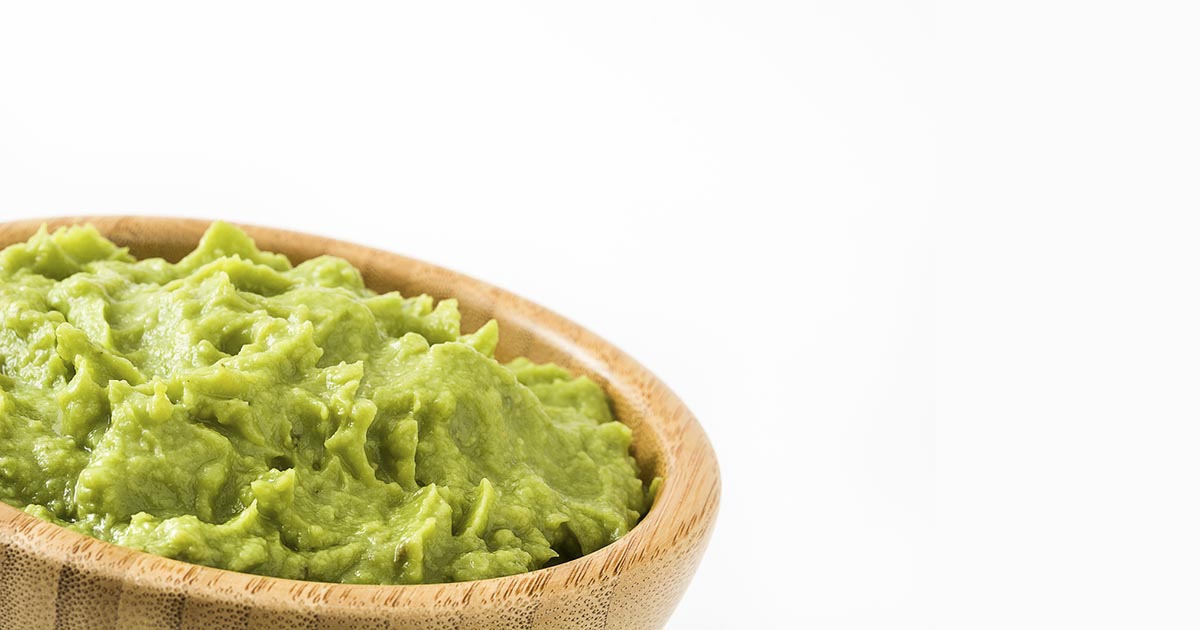Disclosure: This post may contain affiliate links. This means if you click on one of these links and purchase an item, we will receive a small commission at no extra cost to you. All opinions are our own.
Fish sauce is a flavorful condiment that is a staple in Asian cuisine.
While the sauce is highly valued for its flavor-enhancing properties, what nutritional benefits does it offer?
This article provides a comprehensive guide to the nutritional values of fish sauce, its benefits, and potential downsides.
Table of contents
What Is Fish Sauce?

Fish sauce has been part of the human diet for thousands of years. For example, the Romans had their own widely used version of the sauce called “garum” (1).
In more recent times, fish sauce is not so popular culturally in the Western world today. However, it is a staple part of the diet in many Asian countries, including China, Japan, Korea, Thailand, and Vietnam, among others (2).
Fish sauce provides a deep “umami” and salty flavor to food. As such, it is a valued ingredient for giving numerous dishes a greater complexity in taste.
Contrary to what one might expect, fish sauce does not have a strong “fishy” taste. It does have a slight seafood-like taste, but it shares some flavor similarities with condiments like soy sauce.
Generally speaking, fish sauce is used in cooked dishes. That said, it is a versatile ingredient, and people commonly use it to help flavor fermented foods. A common example of this is kimchi, the national dish of Korea (3, 4).
Other uses of fish sauce include its use in marinades and dips.
How Is It Made?
The production of fish sauce involves a fermentation process using the simple ingredients of seafood and salt.
The following steps outline a typical production process (5, 6):
- First of all, a type of fish or seafood serves as the primary ingredient, with smaller fish such as anchovies often being the chosen ingredient.
- The fish is cleaned and prepared for fermentation.
- Once the cleaning process is complete, the fish are layered with salt and then stored in large wooden barrels.
- The fish is allowed to ferment for a varying length of time, depending on the specific product. Some fermentation processes may last for several months, while others may extend for more than a year.
- During the fermentation process, enzymes gradually break down the fish solids into a liquid state. As the protein degrades, it creates free amino acids and peptides, both of which contribute to the rich flavor of fish sauce.
- Once the fermentation period concludes, the liquid is pressed or strained and then bottled, ready for distribution.
Nutritional Values of Fish Sauce
Now that we understand the flavor-enhancing properties of fish sauce, let’s explore its nutritional properties. Does it provide a good source of any essential nutrients?
Nutrition Facts
The following tables list the complete nutritional properties of fish sauce per 18-gram tablespoon serving.
All nutritional data has been sourced from the USDA’s FoodData Central database (7).
Percent daily values were calculated using USDA data in conjunction with the FDA’s recommended daily values, which are based on a 2000-calorie diet (8).
| Name | Amount | % Daily Value |
|---|---|---|
| Calories | 6 kcal | |
| Carbohydrates | 0.66 g | 0.2% |
| Fiber | 0 g | 0% |
| Sugars | 0.66 g | |
| Fat | <0.01g | <1% |
| Saturated | 0.001 g | <1% |
| Monounsaturated | 0 g | |
| Polyunsaturated | 0.001 g | |
| Omega-3 | 0 g | |
| Omega-6 | 0 g | |
| Protein | 0.91 g | 1.8% |
| Cholesterol | 0 mg |
As the table illustrates, fish sauce contains very few calories. It has a minimal amount of dietary carbohydrates and protein, and it does not provide a significant amount of fat.
Vitamins
| Vitamin | Amount | % Daily Value |
|---|---|---|
| Choline | 2.38 mg | 0.4% |
| Folate | 9.18 mcg | 2.3% |
| Vitamin A, RAE | 0.72 mcg | 0.1% |
| Vitamin B1 (thiamin) | <0.01 mg | 0.1% |
| Vitamin B2 (riboflavin) | 0.01 mg | 0.8% |
| Vitamin B3 (niacin) | 0.42 mg | 2.6% |
| Vitamin B5 (pantothenic acid) | 0.02 mg | 0.4% |
| Vitamin B6 (pyridoxine) | 0.07 mg | 4.1% |
| Vitamin B12 (cobalamin) | 0.09 mcg | 3.8% |
| Vitamin C | 0.09 mg | 0.1% |
| Vitamin D | 0 mcg | 0% |
| Vitamin E | 0 mcg | 0% |
| Vitamin K | 0 mcg | 0% |
As indicated in the table, fish sauce does provide a small amount of B vitamins.
However, it is not a significant source of vitamins.
Minerals
| Mineral | Amount | % Daily Value |
|---|---|---|
| Calcium | 7.74 mg | 0.6% |
| Copper | 0.01 mg | 1.1% |
| Iron | 0.14 mg | 0.8% |
| Magnesium | 31.50 mg | 7.5% |
| Manganese | 0.04 mg | 1.7% |
| Phosphorus | 1.26 mg | 0.1% |
| Potassium | 51.84 mg | <0.1% |
| Selenium | 1.64 mcg | 1.1% |
| Sodium | 1413.18 mg | 61.4% |
| Zinc | 0.04 mg | 0.4% |
Fish sauce contains high levels of sodium and provides a moderate source of magnesium. Besides this, it has a relatively low mineral content.
Benefits of Fish Sauce
Here is an overview of fish sauce’s benefits, whether nutritional in nature or down to its distinct characteristics.
1) Enhances the flavor of various dishes
Fish sauce provides a deep and complex flavor, significantly improving the overall taste of dishes.
Its strong flavor means that only a small amount is necessary; a single 18-gram tablespoon serving is enough.
Imparting a distinctive umami and salty flavor, using fish sauce as a condiment can enhance the palatability of healthy home-cooked meals.
While not a benefit of fish sauce itself, making healthier meals more enjoyable can encourage adherence to better dietary choices.
2) A moderate source of B vitamins and magnesium
In general, fish sauce is not a substantial source of essential micronutrients.
However, it does provide a modest amount of magnesium and B vitamins.
According to USDA data, a tablespoon serving provides 2-4% of the daily value for folate, niacin, and vitamins B6 and B12. Additionally, this serving provides 7.5% of the daily value for magnesium (7, 8).
Among their functions, B vitamins play an important role in energy production, DNA synthesis, and the nervous system (9).
Magnesium is also vital for energy production and plays a key role as a cofactor in protein synthesis, blood sugar regulation, and the maintenance of blood pressure, among other functions (10).
3) Low in calories
While many commonly used condiments are calorie-dense (e.g. mayonnaise, ketchup, ranch dressing, and barbecue sauce), fish sauce is a low-calorie condiment, containing just six calories per serving.
This makes it an excellent choice as a flavor enhancer for individuals aiming to reduce their energy intake.
4) Iron-fortified fish sauce can improve iron status
In regions where fish sauce is a dietary staple, it has been fortified with iron.
Studies examining the effectiveness of fortifying fish sauce have demonstrated positive results.
In a 6-month randomized controlled trial involving 152 Vietnamese women with iron deficiency anemia, the consumption of iron-fortified fish sauce was examined to assess its impact.
The results indicated that regular consumption of iron-fortified fish sauce consistently increased iron levels. Additionally, it reduced the prevalence of iron deficiency anemia (11).
5) A good substitute for soy sauce
Due to its rich umami flavor, fish sauce serves as an excellent soy sauce alternative for individuals with soy allergies.
While not an exact replacement, it imparts a similar flavor-enhancing effect to dishes.
Potential Downsides of Fish Sauce
Like all foods, fish sauce can have potential downsides. Here is an overview of some of these drawbacks.
High in sodium
The main concern with fish sauce is its high sodium content.
As demonstrated in the nutritional values section, a single 18-gram tablespoon serving contains 1413 mg of sodium (7).
This amount represents 61% of the upper recommended daily value for sodium, based on a typical 2000-calorie diet (8).
Therefore, it is important to use fish sauce mindfully and in moderation.
Individuals following a low-sodium diet have several options:
- Consider alternative condiments: Fish sauce has a high salt content, and alternatives may be a better choice.
- Look for a low-sodium variety: “Light” or “reduced-sodium” fish sauce will have a lower sodium content.
- Use a smaller amount: As previously mentioned, fish sauce is very flavorful, and even a smaller 1/2 tablespoon serving will impart some flavor to a dish.
Can potentially cause allergies
Fish and shellfish are allergens that affect some people (12, 13, 14).
Since the primary ingredient of fish sauce is fish or shellfish, the sauce could trigger allergic reactions in those with seafood allergies.
Anyone who suspects they have a seafood allergy should seek guidance from their physician or a trusted healthcare professional.
How To Use Fish Sauce
As a versatile condiment, there are many different ways to use fish sauce, and it tastes good with a wide range of savory foods.
Here some of the most common uses:
- Stir-fry: Enhance the flavor of stir-fried dishes by adding a serving of fish sauce.
- Marinade: Use it as a marinade or coating for meat, poultry, or tofu to infuse them with a rich and flavorful taste.
- Sauteing vegetables: When sauteing vegetables, add a bit of fish sauce to the pan. This works especially well with bitter-tasting vegetables like leafy greens and slightly sweetens their taste.
- Dip: Create a simple dip by combining fish sauce, fresh lemon juice, and chives. Use it as a dipping sauce to add extra flavor to various foods.
- Fried rice/noodles: Elevate the flavor of fried rice or noodle dishes by adding a small dose of fish sauce, especially when combined with other flavorful ingredients like garlic and ginger.
- Soups and stews: Fish sauce can be a flavor-enhancing addition to soups and stews, providing them with a deeper umami flavor.
Where To Buy
You can typically find fish sauce in most larger grocery stores. It may be located with other condiments, or potentially in an ‘international foods’ section.
If not available in local supermarkets or grocery stores, Asian grocery stores are very likely to carry it.
Additionally, Amazon have a wide range of fish sauce products.
Other locally based online retailers will likely stock the condiment, too.
Common Questions About Fish Sauce
Finally, here are some answers to frequently asked questions about fish sauce.
Fish sauce has a deep and complex flavor with strong umami and salty tastes. It also has slight seafood notes, but these are mild, particularly when used alongside other ingredients in a dish. People who dislike seafood may still enjoy its taste.
Fish sauce isn’t inherently ‘healthy’ or ‘unhealthy.’ It can enhance the flavor of nutrient-rich whole foods but is very high in sodium. Thus, it can be unhealthy if consumed excessively.
The high salt content of fish sauce makes it somewhat resistance to spoilage and bacterial growth. However, the sauce should still be stored in a cool and dry place once opened. It can also be refrigerated, but this is not strictly necessary. Check the product label for specific storage instructions and the “best before” date.
The USDA database lists a serving of fish sauce as an 18-gram tablespoon, but the amount depends on the dish and the number of servings. Adjust the quantity to taste (7).
No, fish sauce and soy sauce are different condiments. The two do share some characteristics, such as their umami and salty flavors. However, since one is made from seafood and the other is made from soybeans, they each impart their own distinct flavor.
Yes, fish sauce should typically be gluten-free. However, as with any food sensitivities or allergies, it is essential to check the product label to confirm this. It is possible that some branded products may contain additional ingredients that contain gluten.
No, this condiment is unsuitable for vegetarians or vegans as its primary ingredient is fish.
Here are some flavorful condiments that can also enhance the taste of various dishes: soy sauce, Coconut Aminos, Liquid Aminos, oyster sauce, Worcestershire sauce, tomato paste, and sesame oil.
Final Thoughts
While not an essential ingredient, fish sauce is a versatile ingredient that will enhance the taste of any dish.
Since people sometimes find it difficult to make home-cooked food appealing, its flavor-enhancing characteristic can be an excellent benefit.
However, it is important to use it in moderation due to its high sodium content.








